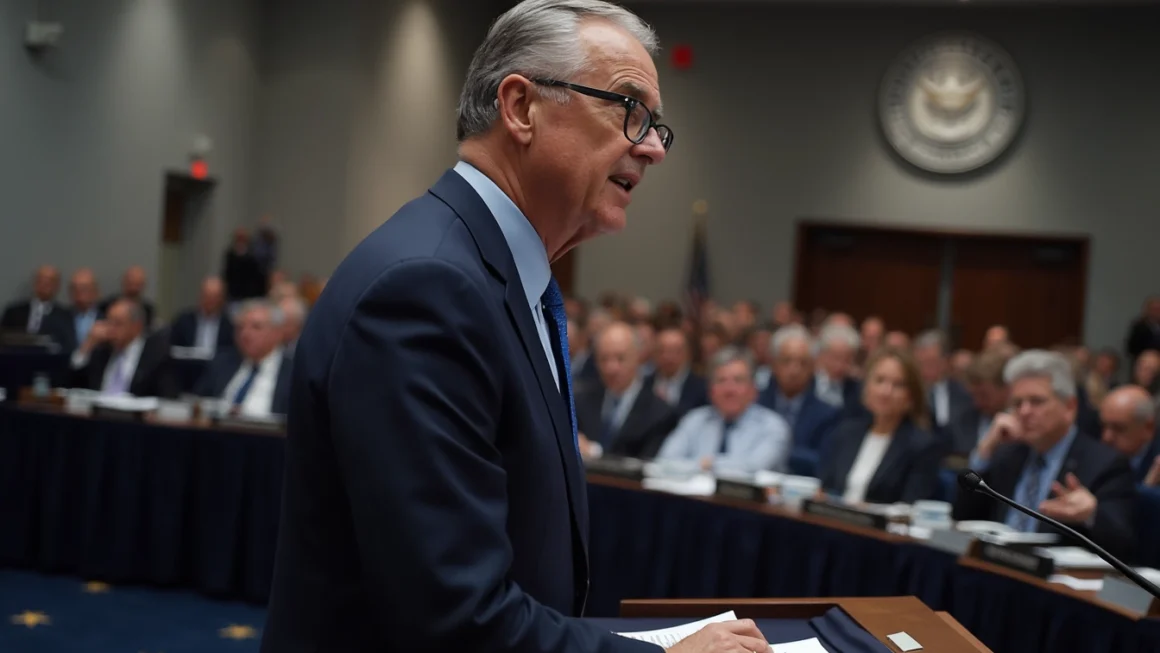As the 2024 presidential election looms on the horizon, the Federal Reserve finds itself in an increasingly delicate position. The central bank, known for its commitment to political neutrality, may soon face challenges in maintaining its apolitical stance, especially with former President Donald Trump emerging as a frontrunner in the Republican primaries.
The Fed’s Dilemma: Navigating Political Waters
Table of Contents
Federal Reserve Chair Jerome Powell has consistently emphasized the importance of the Fed’s independence from political influence. However, as Trump’s campaign gains momentum, the central bank may find it increasingly difficult to avoid addressing the potential economic implications of his policies.
Trump’s previous tenure was marked by frequent criticism of the Fed and its monetary policies. His return to the political spotlight raises questions about how the central bank might respond to potential pressure or policy shifts under a second Trump administration.
Economic Implications of Political Uncertainty
The mere possibility of Trump’s return to office could have significant impacts on financial markets and economic forecasts. Investors and analysts are already speculating about how Trump’s policies might affect various sectors of the economy, from trade relations to fiscal policy.
This uncertainty poses a challenge for the Fed, which must consider all potential economic scenarios in its decision-making process. The central bank may need to factor in the possibility of major policy shifts when setting interest rates and making other monetary policy decisions.
The Balancing Act: Maintaining Neutrality While Addressing Realities
As the election draws closer, the Fed will likely face increasing pressure to comment on the potential economic impacts of various campaign promises and policy proposals. The challenge lies in providing necessary economic analysis without appearing to take political sides.
Powell and other Fed officials may need to develop strategies to address these issues while maintaining their commitment to political neutrality. This could involve carefully crafted statements that focus on economic data and projections without directly endorsing or criticizing specific candidates or policies.
Potential Strategies for the Fed
- Focusing on economic scenarios rather than specific candidates
- Emphasizing the Fed’s role in maintaining economic stability regardless of political outcomes
- Providing clear, data-driven analysis of potential policy impacts
The Global Perspective: International Implications
The Fed’s approach to addressing political uncertainties has implications beyond U.S. borders. Central banks and financial institutions worldwide closely watch the Fed’s actions and statements for insights into global economic trends.
How the Fed navigates this politically charged environment could influence international perceptions of U.S. economic stability and policy predictability. This, in turn, could affect global markets and investment flows.
Looking Ahead: Preparing for Multiple Scenarios
As the election approaches, the Fed will likely need to prepare for a range of possible outcomes. This may involve developing contingency plans for various political scenarios and their potential economic impacts.
The central bank’s ability to maintain its independence and credibility while addressing these complex issues will be crucial in ensuring economic stability and maintaining public trust in the financial system.
The Role of Automation in Economic Analysis
In navigating these challenging waters, the Fed and other financial institutions may increasingly rely on advanced data analysis and automation tools. These technologies can help process vast amounts of economic data and model various scenarios quickly and efficiently. For those interested in exploring how automation can enhance economic analysis and decision-making processes, innovative platforms are available that offer powerful automation capabilities.
Conclusion: A Test of Fed’s Adaptability
The upcoming election cycle presents a unique challenge for the Federal Reserve. Its ability to maintain political neutrality while addressing potential economic impacts of campaign promises and policy proposals will be put to the test.
As the political landscape evolves, the Fed’s approach to these challenges will be closely watched by markets, policymakers, and the public. The central bank’s success in navigating this complex environment will be crucial in maintaining economic stability and preserving its reputation for independence and credibility.
Ultimately, the Fed’s handling of these challenges could set important precedents for how central banks operate in increasingly polarized political environments, not just in the United States but around the world.




